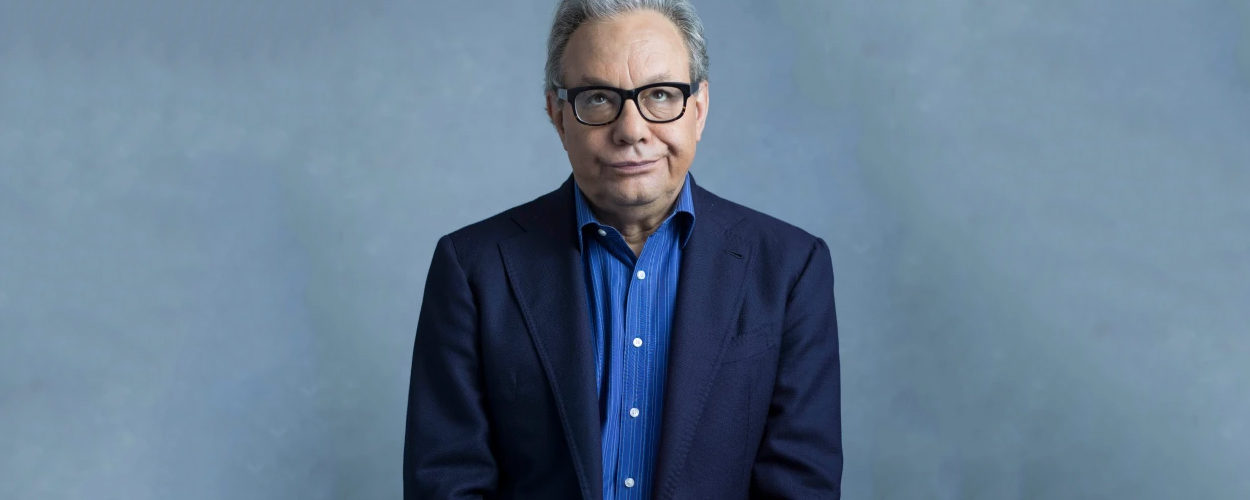This website uses cookies so that we can provide you with the best user experience possible. Cookie information is stored in your browser and performs functions such as recognising you when you return to our website and helping our team to understand which sections of the website you find most interesting and useful.
Business News Labels & Publishers Legal Top Stories
Lewis Black joins the comedians suing Pandora over unlicensed jokes
By Chris Cooke | Published on Friday 8 July 2022

Another comedian has joined the legal battle against Pandora which is testing the liabilities of streaming services that have licensed comedy recordings, but not the comedy material contained in those recordings.
This time it’s Lewis Black who has filed a lawsuit. He previously criticised Spotify for not properly licensing the comedy content on its platform, after that streaming service started removing comedy recordings last year because of a dispute with Spoken Giants, an agency which represents the rights of comedians and other spoken word performers.
He said at the time: “I in no way represent all of the comedians on Spotify, but I do believe that all of them should be paid for the writing that they have done and not just for the performance of what they wrote. It has taken a long time for comedy to be recognised as an artform. Therefore, Spotify should recognise that a joke is as powerful as a lyric of a song, which they do pay for”.
The ongoing copyright dispute between the comedy community and the streaming services centres on the different rights that exist in a comedy recording – ie there is one copyright in the recording itself, and a separate district copyright in the material being performed, what in copyright terms would be a ‘literary work’.
With music, the services, of course, negotiate two sets of licences. Deals with record labels and music distributors cover the copyright in recordings, while separate deals with music publishers and collecting societies cover the separate distinct song rights.
But with comedy content to date, licences have only usually been secured to cover the recordings. That licence would be provided by whichever label or distributor actually delivered the recorded content. The services would argue that until recently there was nowhere to go to license the separate rights in the material, as the labels and distributors don’t control those rights, and comedians haven’t traditionally had publishers or collecting societies.
Although Spotify had its run in with Black and other comedians last year, it’s Pandora that is on the receiving end of the test litigation in this domain. Possibly because when the now Sirius owned-streaming platform was a standalone company listed on the New York Stock Exchange, it used to admit in its investor statements that there were concerns over elements of spoken word content not being fully licensed.
Comedians Nick Di Paolo, Andrew Dice Clay, Bill Engvall and Ron White – and the estates of Robin Williams and George Carlin – have all already sued Pandora regarding all the unlicensed comedy material it has streamed.
Responding to those lawsuits, Pandora hit out in particular at Word Collections, a rival to the aforementioned Spoken Giants which is now representing the literary work copyrights of all the comedians who have sued the streaming firm.
Pandora argued that comedians had long allowed their content to be streamed on the different digital platforms – banking the recording royalties and enjoying the promo benefits, and never quibbling about literary work royalties – until Word Collections came along to cause trouble.
“Word Collections’ true business model is not that of a benign licensing agent or an advocate for comedians’ intellectual property rights”, Pandora said in a forthright legal response, “it is that of a cartel leader”.
With Black now joining the litigation party, his lawsuit states – according to The Hollywood Reporter – “Mr Black once famously quipped in the wake of the Enron Scandal: ‘You don’t want another Enron? Here’s your law: If a company can’t explain in one sentence what it does, it’s illegal’. The exact same thing is true here: If a company can’t explain in one sentence how it has a licence to use copyrighted works, it’s copyright infringement”.
Noting how long services like Pandora have been streaming comedy content without licensing any of the literary works, Black’s lawyers add: “Pandora did what most goliaths do: it decided it would infringe now to ensure it had this very valuable intellectual property on its platform to remain competitive, and deal with the consequences later. Later is now”.
Pandora is yet to comment on this latest comedy lawsuit.





